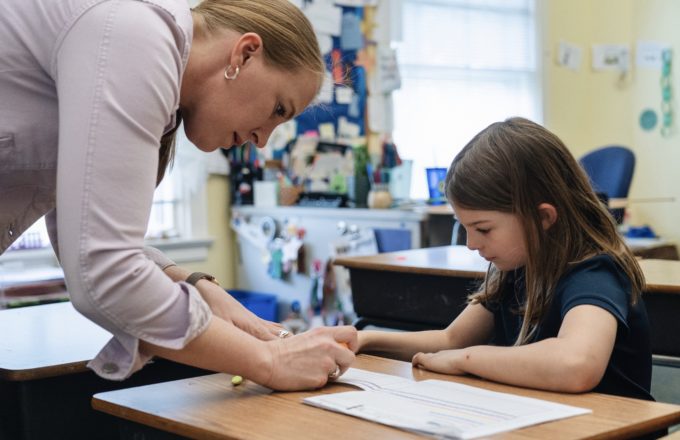Essential Language Skills
Children are not explicitly taught to listen or speak because these skills develop naturally as we are exposed to language. However, students with a specific learning disability (SLD) such as dyslexia often experience difficulty with these critical language skills that are essential to classroom success.
The skills of listening and speaking in the classroom fall into two categories:
Receptive Language
These skills enable us to comprehend spoken and written words and sentences, as well as non-verbal communication. Difficulty with receptive language can present tremendous challenges with learning and social interaction in the classroom. Students who have difficulty in receptive language (in spite of intact visual and hearing function) might:
- Have trouble processing and remembering spoken and written language
- Misunderstand words sentences and more complex information
- Misunderstand non-verbal information, such as body language, pictures, or diagrams
Expressive Language
These skills enable us to speak and write clearly, meaningfully, and efficiently. They are interdependent with receptive language and, therefore, a student with receptive language difficulties may also have an expressive language difficulty. Students who have difficulty in expressive language might:
- Have limited speech
- Lack of specific language
- Experience word-finding difficulty
- Talk too little or too much
- Have difficulty making a point
- Omit critical parts of sentences
- Utilize unusual syntax
As with all areas of language impacted by SLD, early, explicit, and targeted interventions designed to address the full range of a student’s difficulty are the best course of action. Teachers can design instruction to help students build language stores and develop strategies to recall words. The goal is to build funds of knowledge, increase connections between representations, increase the responsiveness to cueing, and develop the skill to self-monitor and self-cue. Students with deficits in receptive and expressive language may feel that the word is on the tip of his/her tongue, but they just can’t get it out. They may snap their fingers, massage their forehead, tap on the table, and gesticulate wildly, all in an attempt to get the word to come out. Other times, students may feel they know the word, but each time they try to say it, it comes out wrong. For example, the student is trying to recall the word “principal” but keeps saying “precipice” or “princess.”


